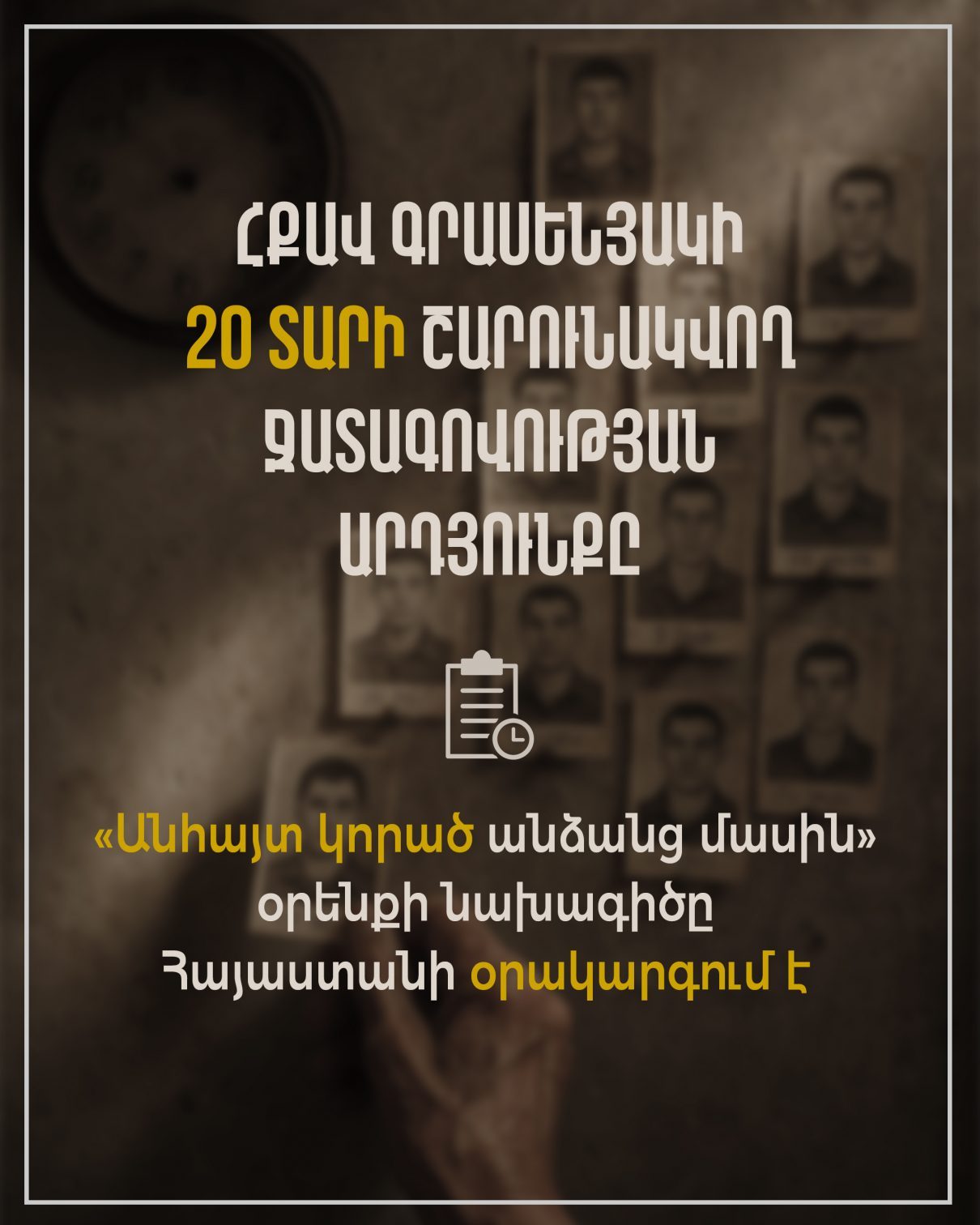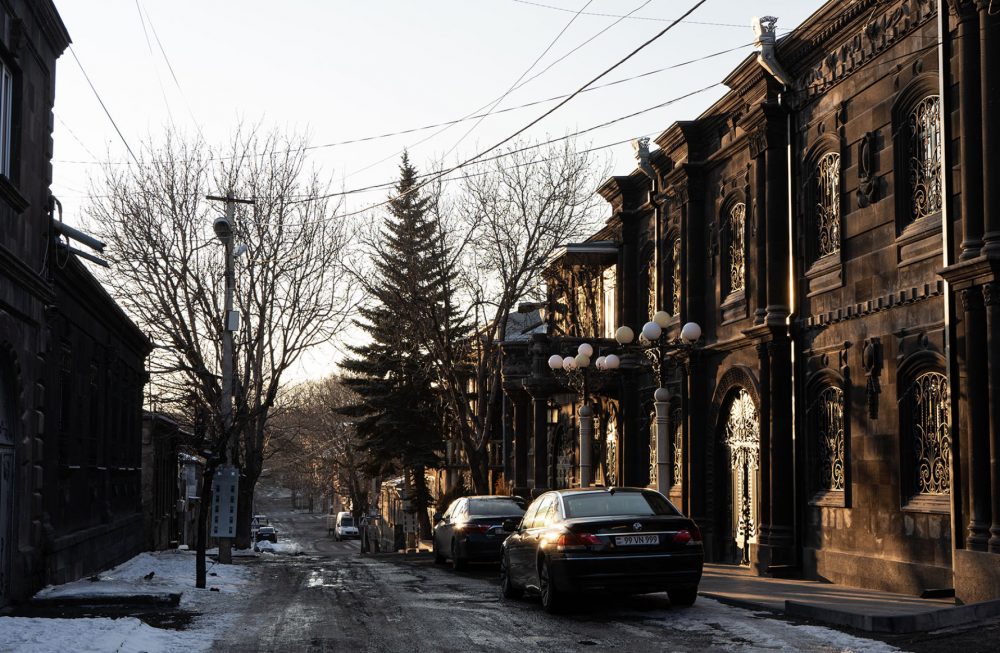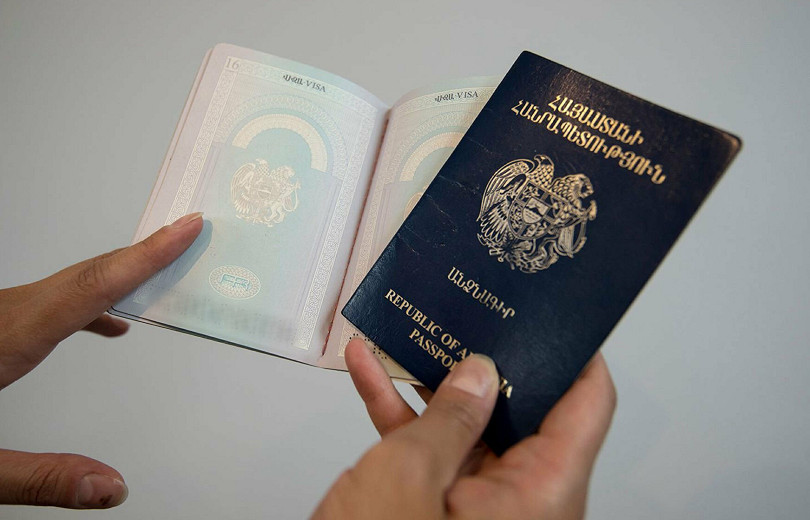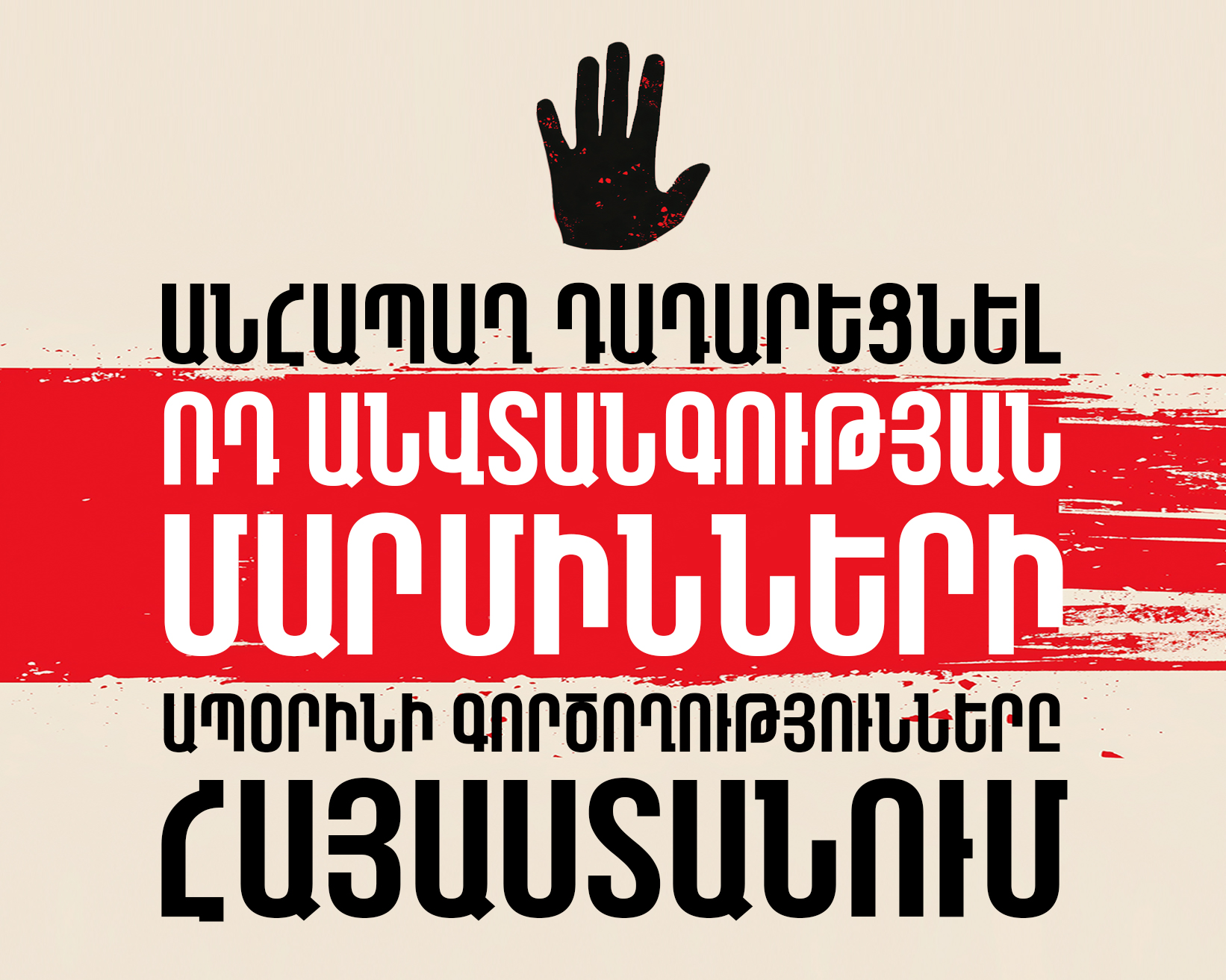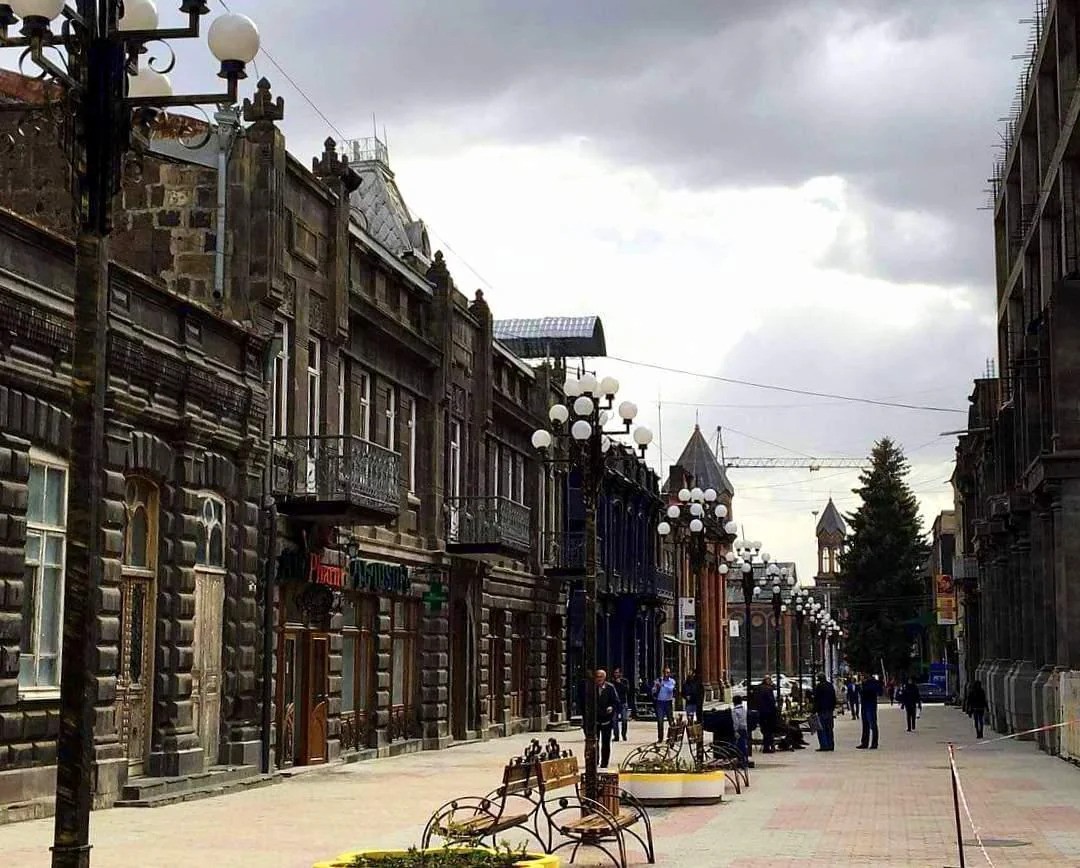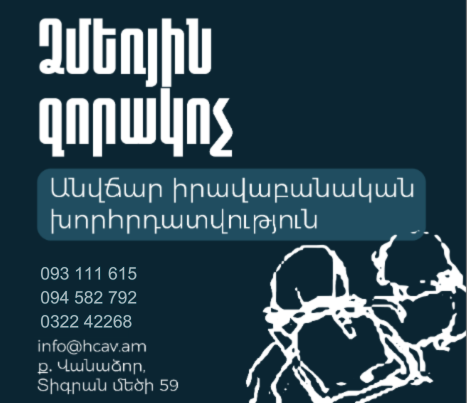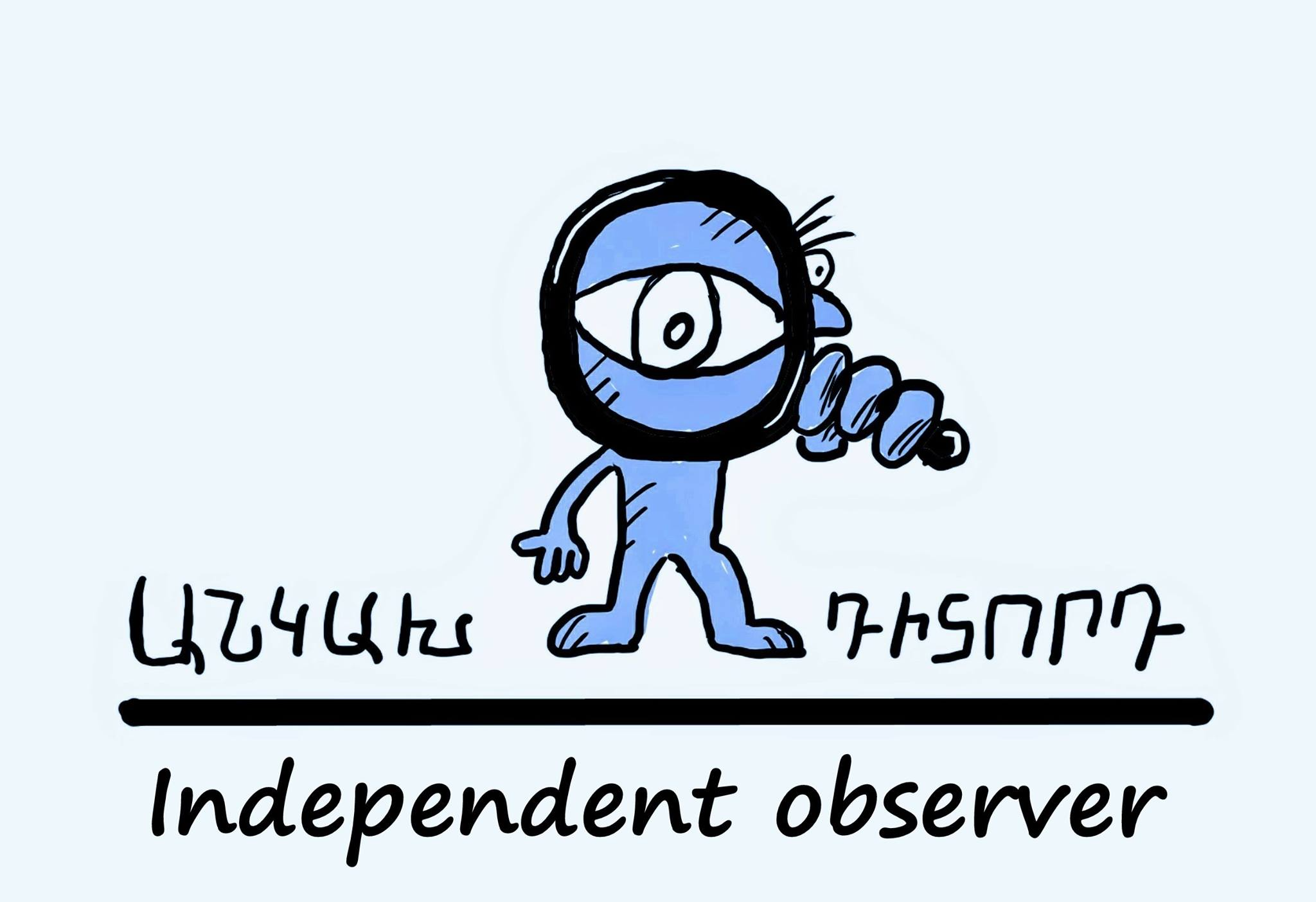




Study of the results of the elections of local self-government bodies on March 15, 2020
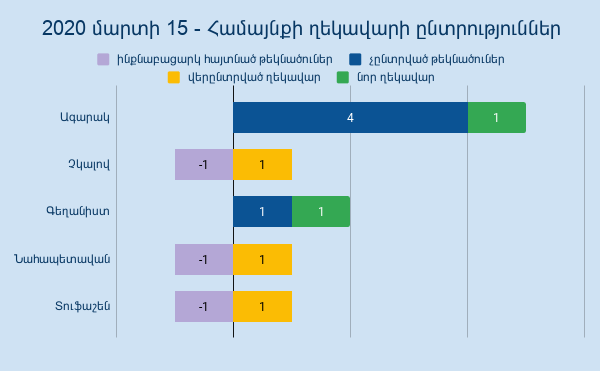
Activities | Electoral Process | Right to Vote and to Participate in a Referendum | News | Civilian Oversight and Monitoring
On March 15, community head elections were held in 3 communities of Shirak region, 1 community of Lori region and 1 community of Aragatsotn region. The Independent Observer did not have an opportunity to observe the voting process, however, it studied the election results. A total of 13 candidates were put up. All the candidates were self-nominated and non-partisan.
In Agarak community of Aragatsotn region, head elections were snap, since the head of the community resigned in December 2019. This was the only community out of the 5 communities, where the incumbent was not put up as a candidate. According to the data published on the Central Electoral Commission website, Vahan Khachatryan, former head of Agarak community and member of the Republican Party of Armenia, was elected as head of the community 4 times (first time in 2005). In 2005, he had 3 opponents, in 2008 and in 2016 he had no opponents. In 2012, his only opponent was Armen Harutyunyan, who was appointed as head of the community on December 27, 2019, and was elected as head of the community as a result of the elections held on Sunday. Armen Harutyunyan, put up as a non-partisan candidate in 2020, was a member of the Prosperous Armenia Party when nominated as a candidate in 2012.
In each of the other 4 communities, besides the incumbents, one more candidate was put up. In three of those communities, namely, Chkalov community in Lori region, Nahapetavan and Tufashen communities in Shirak region, the second candidates self-withdrew before the voting day and as a result, community heads were reelected without electoral competition. The second candidates of Chkalov and Nahapetakan communities, who self-withdrew, work in the municipality.
✅ Roman Shakaryan, elected as head of Lori region Chkalov community, was first elected as the community head in 2012. He was then a member of the Republican Party of Armenia. It should be mentioned that his two opponents were also members of the Republican Party of Armenia. It is noteworthy that Roman Shakaryan’s wife was elected as a member of the council of elders with the most votes in Chkalov community Council of Elders elections of December 2019.
✅Shirak region Nahapetavan community head Gor Petrosyan was first put up and elected in 2012 as non-partisan. In 2015, G. Petrosyan was reelected, already being a member of the Republican Party of Armenia. In 2020, he was again put up as a candidate and elected, without electoral competition, as non-partisan.
✅Shirak region Tufashen community head Artak Yegoryan was first put up as a candidate and elected in snap elections in 2012. In 2015, A.Yegoryan was reelected without electoral competition. In 2012 and 2015, A. Yegoryan participated in the elections being a member of the Republican Party of Armenia and in 2020, he was put up as non-partisan.
Shirak region Geghanist community was factually the only one where the community head had an opponent and was not reelected. Aghasi Ghazaryan, the former head of this community, was first elected in 2005 and was non-partisan. Aghasi Ghazaryan was reelected in 2007, 2012 and 2015, and was put up in all these elections as non-partisan and had opponents. During the elections held in March 2020, Senik Martirosyan (put up as a candidate for the first time) was elected.
Thus, the Independent Observer Alliance again records,
✅There should be a restriction regarding the times a candidate can be nominated in order to provide real competition in community head elections.
✅Party affiliation of community heads mostly reflects the current political expediency rather than the party’s political responsibility.
✅Before passing to proportional election system on the community level, it is necessary to study, assess and determine the sustainability of multi-party system on local level, the possibility and capacity of the involvement of parties, in order to exclude party affiliation of local self-government bodies based on political expediency, which, leading to a single party affiliation on the level of council of elders and community head, may disrupt the logic of self-government and generate dangers of abuse of administrative resources.


